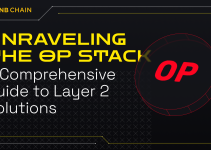
What is Hardhat
Hardhat is a development environment to compile, deploy, test, and debug your smart contract.
Installing
There are a few technical requirements before we start. Please install the following:
Requirements:
- Windows, Linux or Mac OS X
- Node.js v8.9.4 LTS or later
- Git
First, you need to create an empty project npm init --yes
Once your project is ready, you should run
npm install --save-dev hardhat
It’s recommended to install some dependencies.
npm install --save-dev @nomiclabs/hardhat-waffle ethereum-waffle chai @nomiclabs/hardhat-ethers ethers
To use your local installation of Hardhat, you need to use npx to run it (i.e. npx hardhat).
Create A Project
To create your Hardhat project run npx hardhat in your project folder:
mkdir MegaCoin cd MegaCoin
- Intialize your project:
$ npx hardhat 888 888 888 888 888 888 888 888 888 888 888 888 888 888 888 8888888888 8888b. 888d888 .d88888 88888b. 8888b. 888888 888 888 "88b 888P" d88" 888 888 "88b "88b 888 888 888 .d888888 888 888 888 888 888 .d888888 888 888 888 888 888 888 Y88b 888 888 888 888 888 Y88b. 888 888 "Y888888 888 "Y88888 888 888 "Y888888 "Y888 Welcome to Hardhat v2.0.8 ? What do you want to do? … ❯ Create a sample project Create an empty hardhat.config.js Quit
Once this project is initialized, you’ll now have a project structure with the following items:
- contracts/: Directory for Solidity contracts
- scripts/: Directory for scriptable deployment files
- test/: Directory for test files for testing your application and contracts
- hardhat-config.js: Hardhat configuration file
Create Contract
You can write your own smart contract or download the BEP20 token smart contract template.
Config Hardhat for BSC
- Go to hardhat.config.js
- Update the config with bsc-network-crendentials.
require("@nomiclabs/hardhat-waffle");
require('@nomiclabs/hardhat-ethers');
const { mnemonic } = require('./secrets.json');
// This is a sample Hardhat task. To learn how to create your own go to
// https://hardhat.org/guides/create-task.html
task("accounts", "Prints the list of accounts", async () => {
const accounts = await ethers.getSigners();
for (const account of accounts) {
console.log(account.address);
}
});
// You need to export an object to set up your config
// Go to https://hardhat.org/config/ to learn more
/**
* @type import('hardhat/config').HardhatUserConfig
*/
module.exports = {
defaultNetwork: "mainnet",
networks: {
localhost: {
url: "http://127.0.0.1:8545"
},
hardhat: {
},
testnet: {
url: "https://data-seed-prebsc-1-s1.binance.org:8545",
chainId: 97,
gasPrice: 20000000000,
accounts: {mnemonic: mnemonic}
},
mainnet: {
url: "https://bsc-dataseed.binance.org/",
chainId: 56,
gasPrice: 20000000000,
accounts: {mnemonic: mnemonic}
}
},
solidity: {
version: "0.5.16",
settings: {
optimizer: {
enabled: true
}
}
},
paths: {
sources: "./contracts",
tests: "./test",
cache: "./cache",
artifacts: "./artifacts"
},
mocha: {
timeout: 20000
}
};
Compile Contract
To compile a Hardhat project, change to the root of the directory where the project is located and then type the following into a terminal:
npx hardhat compile
Deploying on BSC Network
Run this command in root of the project directory:
$ npx hardhat run --network testnet scripts/deploy.js
Remember your address, transaction_hash and other details provided would differ, Above is just to provide an idea of structure.
Congratulations! You have successfully deployed BEP20 Smart Contract. Now you can interact with the Smart Contract.
You can check the deployment status here: https://bscscan.com/ or https://testnet.bscscan.com/


